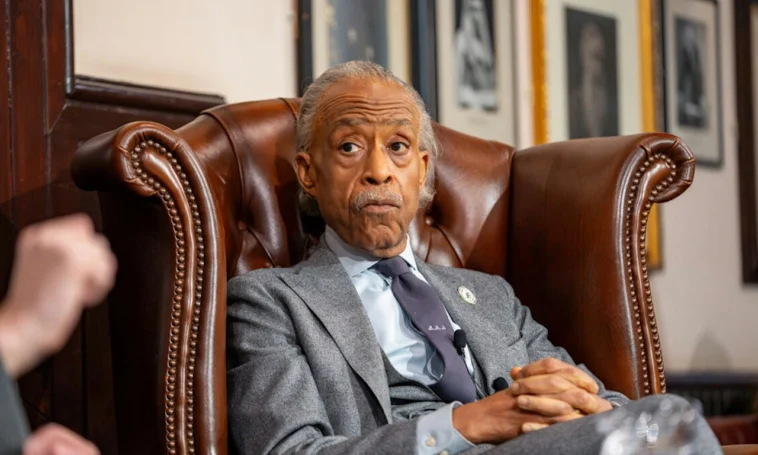Al Sharpton Draws Controversy on MSNBC by Comparing Anti-Israel Protests to January 6. Rev. Al Sharpton compared anti-Israel protests on university campuses to the U.S. Capitol breach on January 6, 2021, during a “Morning Joe” segment. He questioned how Democrats can condemn January 6th while allowing similar scenes to unfold on college campuses. Mika Brzezinski interjected, “Good Lord, don’t make a parallel to January 6th,” but Joe Scarborough agreed with Sharpton, saying, “That has happened, though.”
Brzezinski had made a similar comparison earlier, saying the protests looked like January 6th and were a “terrible example for our students.” Maria Bartiromo on Fox Business also drew a parallel, saying the pro-Palestinian demonstrations were “barbaric” and didn’t receive the same level of outrage as January 6th.
“How do the Democrats, how do all of us on that side, say January 6th was wrong if you can have the same pictures going on on college campuses? You lose the moral high ground,” Sharpton said.
Liberal comedian Bill Maher criticized the anti-Israel demonstrations on his podcast, suggesting there are more worthy causes in the Middle East and warning of political implications, especially in a presidential election year. He cautioned the Left that extreme actions push people in the middle to the Right.
These comparisons highlight the divisive nature of the protests and the need for nuanced discussion. While some see the protests as a legitimate form of political expression, others view them as antisemitic or violent. The January 6th parallel is controversial, but it underscores concerns about the impact of extreme actions on political discourse and social cohesion.
The protests have sparked a national conversation about free speech, antisemitism, and the Israeli-Palestinian conflict. While some have criticized the protests as antisemitic, others see them as a legitimate form of political expression. The media’s role in shaping this narrative is crucial, and responsible reporting is essential.
Moreover, the protests have highlighted the need for greater education and awareness about the Israeli-Palestinian conflict. Many students and faculty members have spoken out about the need for greater resources and support to address the spread of hate speech and to promote greater understanding and dialogue between different groups.
In addition, the protests have raised questions about the role of universities in addressing social and political issues. Many have argued that universities have a responsibility to promote free speech and academic freedom, while others have argued that universities have a responsibility to protect their students from hate speech and discrimination.
Overall, the discussion on “Morning Joe” and other media outlets emphasizes the need for careful consideration and thoughtful dialogue in addressing complex issues like the student protests and antisemitism. By engaging in respectful and open-minded discussion, and by seeking out multiple sources and perspectives, we can work towards greater understanding and progress.
Furthermore, the conversation highlights the importance of media literacy and critical thinking in today’s digital age. With the rise of social media and online news sources, it’s easier than ever to fall prey to sensationalized headlines and misinformation. Responsible reporting and critical evaluation of information are crucial in promoting informed discourse and civic engagement.





Join the Community and Be a Part of the Conversation
You must be logged in or registered to post a comment.